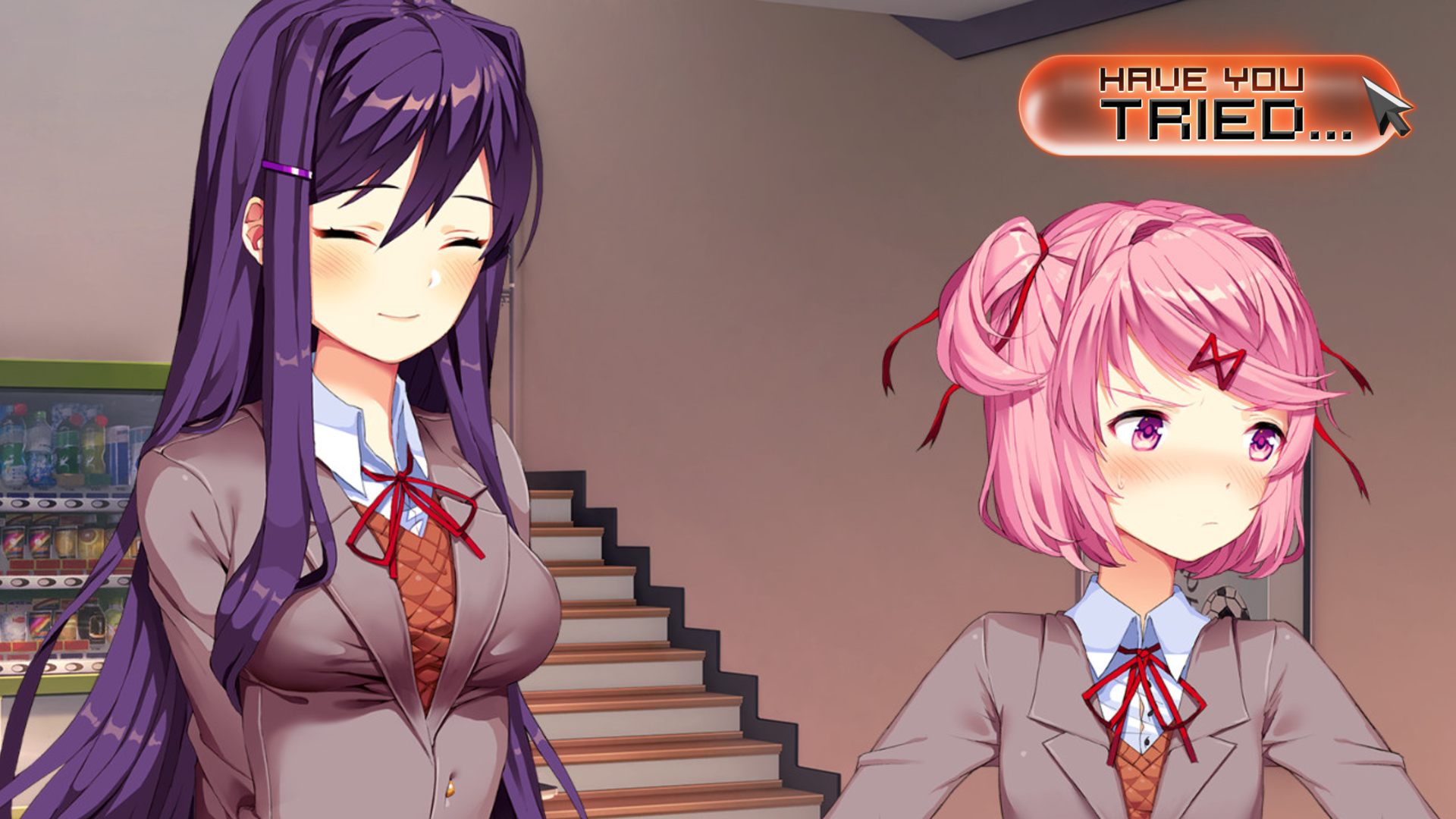
Doki Doki Literature Club Plus is a wolf in a very kawaii sheep’s clothing, even if you already have an idea of what to expect. Yes, this may be a visual novel, with all the queasy trappings of a game set in a school that still comes with a disclaimer that everyone involved in the story is above the age of 18, but this convincing re-release hones in on the dread that comes from knowing that something isn’t quite right, whether or not you’ve played this before.
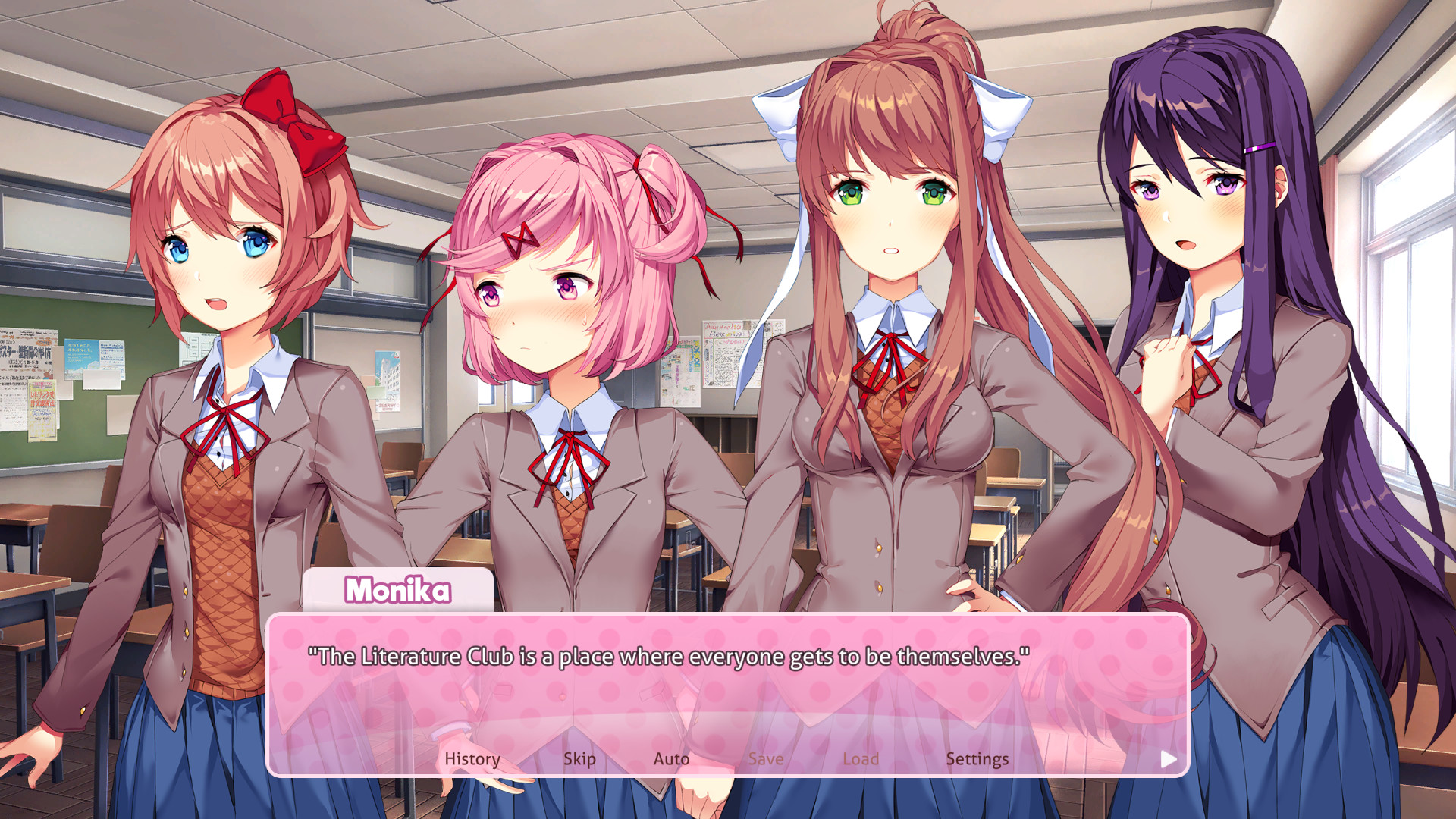
Now, let me lay down some egotistical context. Anime isn’t my bag. My experience with it can be roughly summed up as watching half a season of Attack On Titan (fun concept, but the show is not for me) and reviewing a few games for Official PlayStation Magazine back in the day. As you can imagine, a lot of 6/10s. Basically, I’m going to get a lot of grief from gushing about an anime from the wider GamesRadar+ team, and that still hasn’t deterred me from writing this. Why? Doki Doki Literature Club Plus is clearly a game that toys with conventions that I’m not overly familiar with, but that doesn’t stop it from making its punches land.
*Spoilers for Doki Doki Literature Club Plus ahead, which will touch on the themes of suicide, depression, and anxiety that are in the game.*
Poetic justice
The story starts innocently enough. You play a faceless student, who is best friends with the girl next door, Sayori. She’s clearly someone you feel comfortable with, and she quickly pressures you to join her literature club, where you meet the only other 3 members: Head of the group Monika, the timid but passionate Yuri, and the sparky Natsuki. A lesser game would let this play out harmlessly, as you try to woo the girl of your choosing and take it from there. Doki Doki on the other hand decides to ruin your sleep for a few months and turns into an all-out spiritual assault on your soul.
Firstly, there’s the mid-game twist that is as harrowing as anything you’ve seen in a game before. After a couple of days or so of chatting with the girls at the club, Sayori becomes visibly more and more withdrawn. As she eventually reveals her depression and her feelings for you, you’re given a choice of telling her that you feel the same or that she will always be your closest friend. No matter what you say, you will then wake up the next day, eventually head to Sayori’s house, and find that she has hung herself. It’s a sickening jolt, and that the game abruptly ends there feels like an act of mercy more than anything else. Then you hit the main menu again…
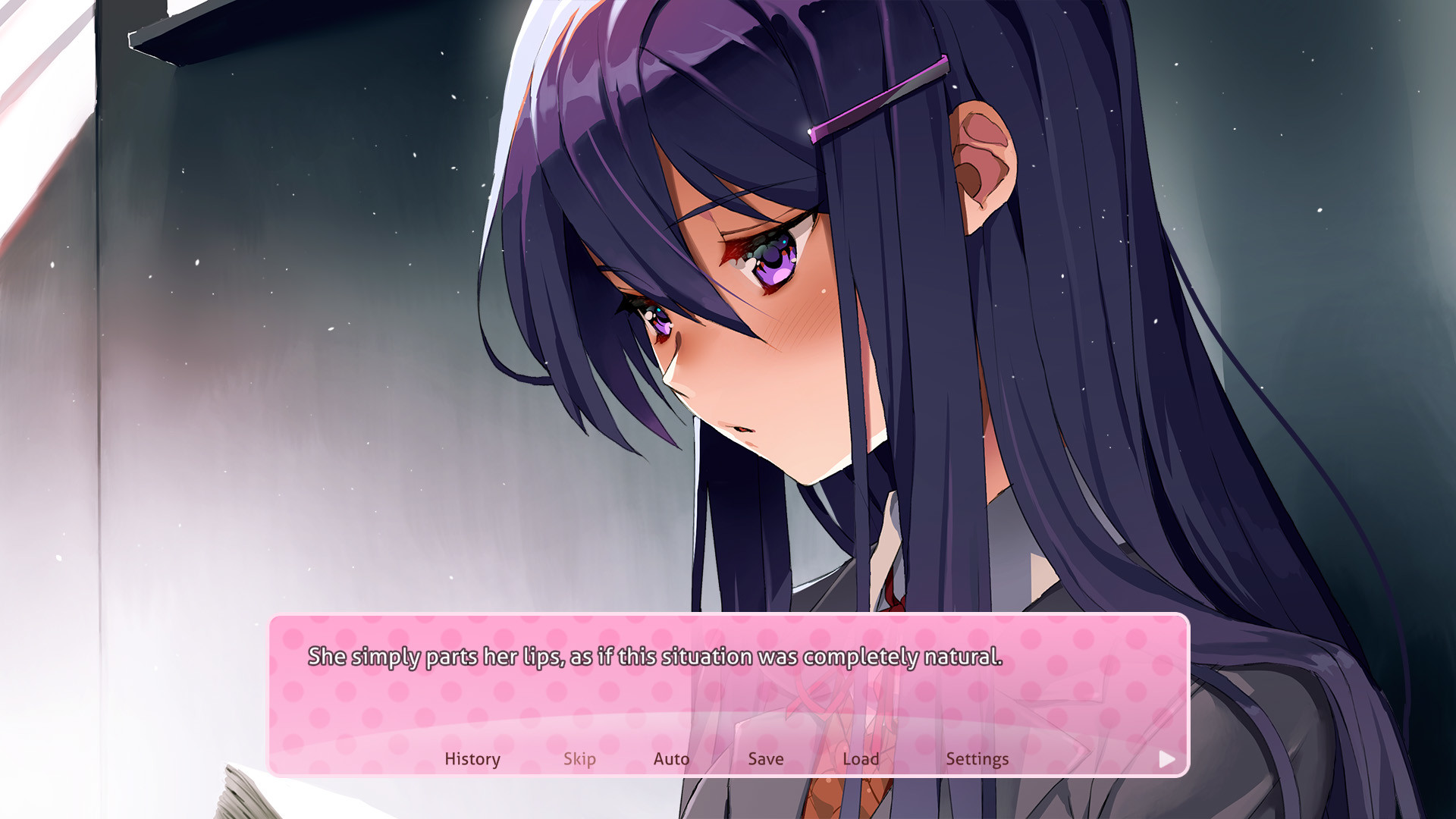
Sayori’s death hits hard because up until that point, the game plays like a typical visual novel. The closest hint you get to the darkness that waits is the poetry mini-game where you have to choose words to focus on the character you wish to woo, but terms like tragedy, suicide, and atone give an idea of where it could go. But after this transgressive moment, Doki Doki Literature Club Plus moves from muscular horror - all blunt shocks and unsettling images - into psychological warfare, kicking in the fourth wall, grabbing you by the throat, and refusing to let go.
The story then plays out again without Sayori, but this time full of moments that will upset, unnerve or just plain disturb. There are visual glitches to keep you on your toes, character traits are stretched to such extremes that you dread talking to members of the club, and one section that plays like an anime version of Michael Haneke’s Funny Games infamous, lingering shot. As horror goes, it’s near faultless, constantly defying expectations and worming its way into your subconscious, until you reach a finale that does the impossible and manages to find a climax that has the necessary sting in the tail while also giving the unfortunate literature club the send-off it deserves.
Sign up to the GamesRadar+ Newsletter
Weekly digests, tales from the communities you love, and more
Backend Blues
Where this re-released version differs from the original PC version is the way you interact with the game in the backend. The original version ingeniously felt like a ghost in the machine, forcing you to physically delete characters from the file dictionary of the game itself (I really did mean it when I said that the fourth wall gets bulldozed through). Obviously, that sort of twist is going to be much harder to replicate on closed platformers like the Nintendo Switch, PS5, and Xbox Series X, but Team Salvato springs another surprise that’s worthy of this cult classic.
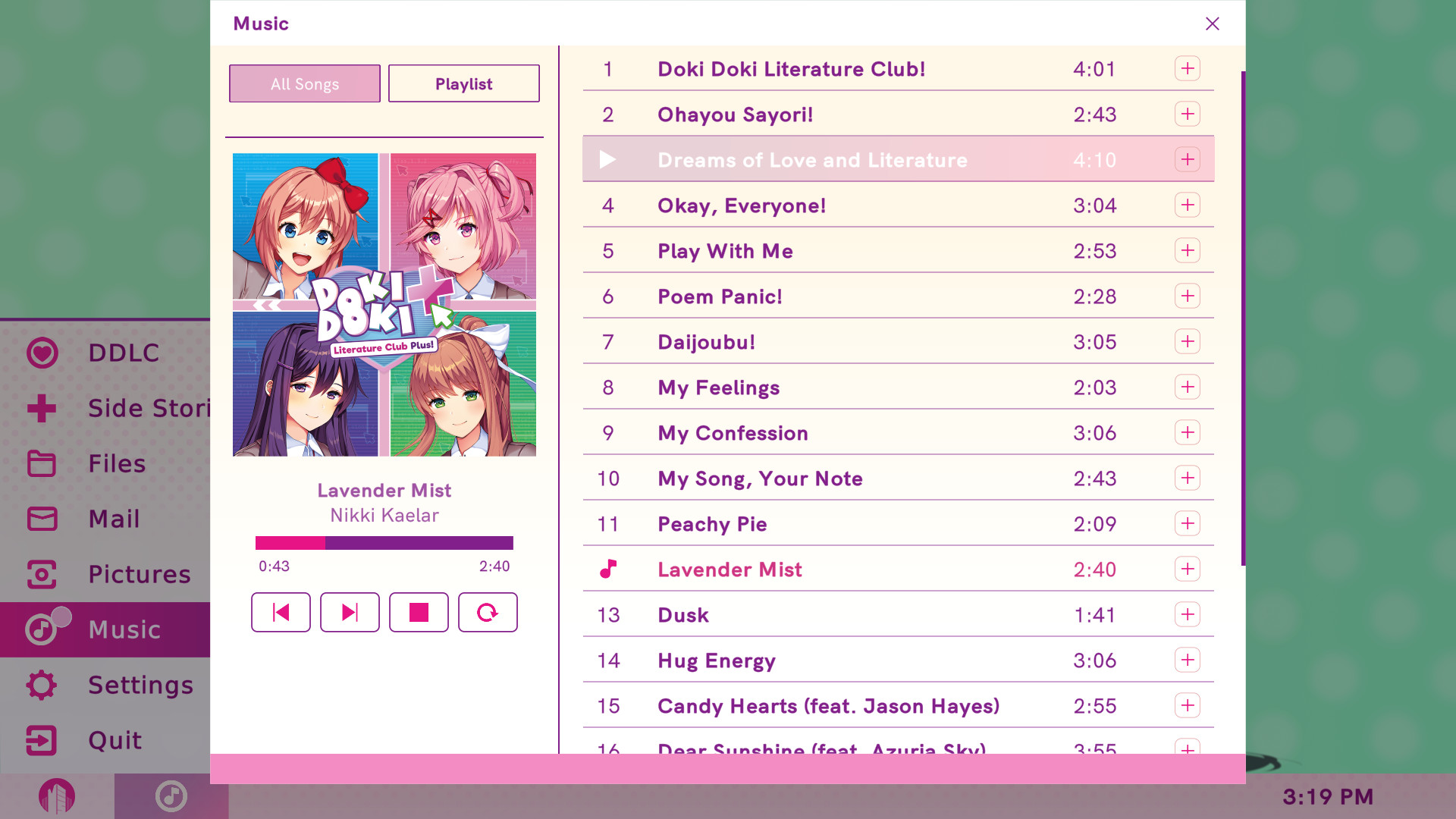
Now, the game has its own "operating system", the Metaverse which acts like a PC’s desktop and hosts the files associated with the game instead. While this has cute extras like the game’s soundtrack and tonnes of concept art, the real masterstroke to this approach is that buried throughout are hidden documents that can only be opened at a specific time of day. That in turn then forces you to go into your console’s operating system to change the time, which means that you’re yet again playing Doki Doki Literature Club as if it’s possessed your whole console. The ingenuity is almost as impressive as how high your heart rate will be when you’re left alone with Yuri.
Bit on the side
The other major addition in this comprehensive re-release is a set of new short stories which paint in the back story to the main quartet of students, acting as a prequel and melancholic mood pieces that tease out more details about their characters. While the two I’ve played so far are nowhere near as abrasive as the main game itself, they’re laced with more existential dread. If the main story is predicated on the idea that these characters aren’t real and know it, then these side stories give them a life that only makes the pain of seeing them suffer harder. Sayori’s depression, for instance, stops being a gut punch tactic and becomes a slow-moving tragedy in the context of these vignettes.
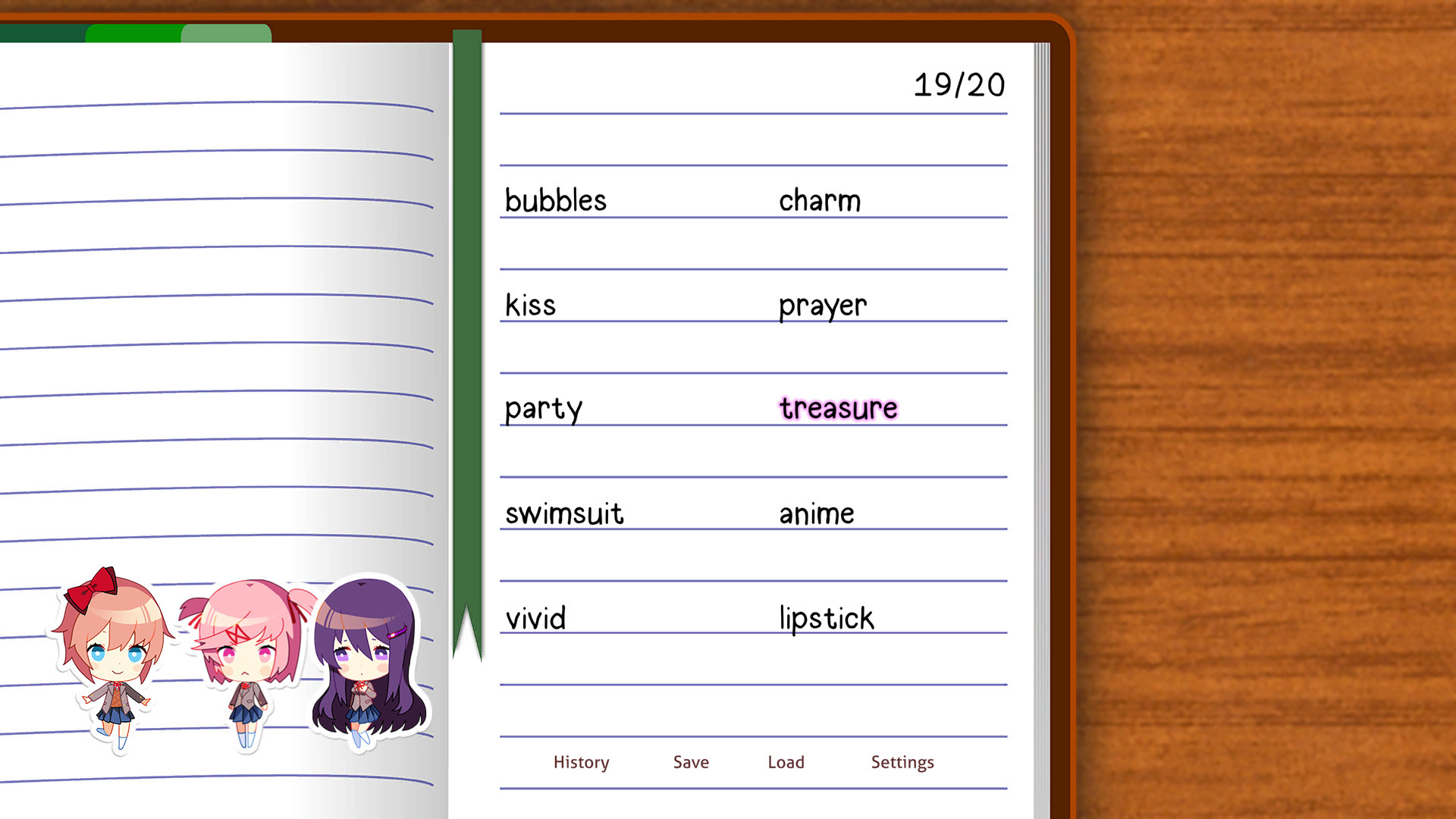
Replaying a game is usually a sign of adoration. That there is something so powerfully impressive that you need to revisit it and exhaust your love for it. Doki Doki Literature Club Plus’ most impressive trick is to keep luring me back not because I want to subject myself to it, but because I’m desperate to find meaning in the abyss it presents. By deepening its razor-sharp universe, that need to keep on staring into it has only gotten stronger, even if this is a story about the dangers of obsession. Like the very best horror, Doki Doki lives in my head rent-free, and I won’t be evicting it anytime soon.
Doki Doki Literature Club Plus! is out now on Nintendo Switch, PS4, PS5, Xbox One, Xbox Series X, and PC. You can also pick up the original version - Doki Doki Literature Club! - for PC and name your own price.

Ben Tyrer is a freelance games journalist with over ten years experience of writing about games. After graduating from Bournemouth University with a degree in multimedia journalism he's worked for Official PlayStation Magazine as a staff writer and games editor, as well as GamesRadar+ (hey, that's this website!) as a news editor. He's also contributed to Official Xbox Magazine, Edge, PC Gamer, GamesMaster, PC Games N, and more. His game of the year - no matter the year - is Rocket League.


